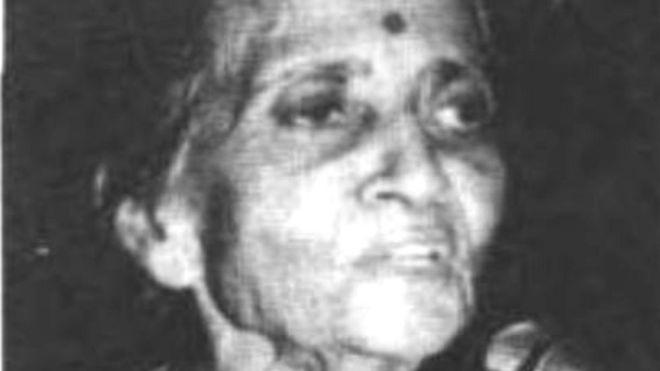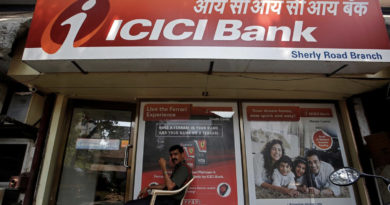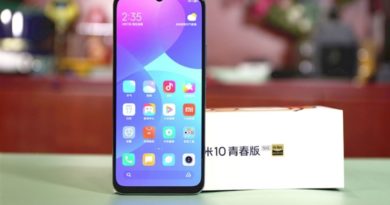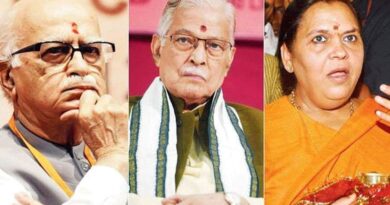Usha Mehta: The woman who runs the intelligence radio against the British
August 8, 1942 was the day. The place was the Gowalia Tank Ground in Bombay (now Mumbai). Thousands of people gathered to listen to Gandhiji.
Gandhiji while addressing the people said, “Today I am giving you a slogan. Keep it in your heart. This slogan is – do or die.” He called upon people to join the ‘Quit India Movement’.
Usha Mehta was one of the many young students who had taken to heart Mahatma Gandhi’s do or die slogans and played an important role in India’s freedom struggle.
‘A Gujarati girl’s intelligence radio-station’
With the call of Quit India Movement, the British Government arrested Gandhiji and other big Congress leaders. By putting the leaders in jail, the government wanted to destroy this entire movement.
However, the freedom fighters had already started their activities by becoming underground.
An intelligence radio station was one such activity. In the history books, it has been recorded as the courageous stories of ‘Congress Radio’ and Usha Mehta.
Usha Mehta was born on 25 March 1920 in Gujarat. In the book ‘Homage to Usha Mehta’ written by Sita Ojha, it is written that she was born in Saras village of Surat district. His family moved to Mumbai in 1933 after his father retired as a judge.
His father Usha Mehta was unhappy with his decision to join the fight for independence as he had himself worked as a judge in the British government. But, Usha did not stop with this.
Naveen Joshi has written in his book ‘Freedom Fighter Remembrance’ that Usha Mehta became involved since childhood with the work of monitoring, rallies and spinning wheel.
It was his daily duty to carry out restricted work like bulletin, distribution of pamphlets and making and selling salt against the British Government. There is also an interview of Dr. Mehta in Joshi’s book.
Mehta said in this interview, “My first slogan against the British government was ‘Go back to Simon’. It was the year 1928 and I was just 8 years old”.
At that time Usha Mehta and other young girls formed a team called Manjar Sena. The group of boys was named Vanar Sena. In Gujarati, the word manjar is used for cat.
Mehta has said in the interview, “I didn’t need any inspiration. At that time the whole atmosphere was such that no one was left untouched by it.”
In August 1942, Gandhiji, Nehru, Vallabhbhai Patel and other leaders were present when they gave speeches at the All India Congress Committee (AICC) meeting in Bombay.
According to the book ‘Untold Story of Broadcasting during Quit India Movement’, the work of the intelligence radio station included 20-year-old Vitthaldas Khakhar, 23-year-old Chandrakant Jhaveri, Jagannath Thakur, 40-year-old Parsi engineer Nariman Printers and his associates Mirza.
This radio became the voice of independence against British rule.
At the time when the voice of the press was suppressed, at the time it was through the radio that freedom of the country was being burnt to the remote areas.
In this way Ushaben has mentioned his contribution in the interview given to Shankar Uma on 30 October 1969.
Lack of money was a major obstacle in the way of revolutionary activities. Mehta also had to struggle with this.
In an interview to Shankar Uma, Mehta says, “Some of our relatives gave their jewels on their own. However, we were hesitant to take them.”
When Mehta came to know that some other groups were also planning such activities, Mehta tried to contact them. One of them was Dr. Ram Manohar Lohia.
In her interview, Mehta says she received a letter from Lohia and met him before starting the radio station. Lohia also took active participation in it.
He gathered his resources and assigned one of his friends to become a transmitter for intelligence radio. By 13 August 1942, it was operational.
In an interview to the Press Information Bureau, Mehta said, “On August 14, 1942, we made our first broadcast.”
Intelligence radio station functioning
The broadcast began with the sentence – ‘This is Congress Radio. We are speaking from any part of India at 42.4 M.
It is recorded in Arun Chandra Bhuyan’s book ‘Quit India Movement’ that a transmission center was installed on the roof of a building near Chowpatty in Mumbai.
Chicago & Telephone Company was providing technical support and expertise for this.
Mehta told PIB in an interview, “We were running the radio station as an underground activity and we were constantly changing our location so that the police could not catch us.”
Initially, they were broadcasting twice a day in Hindi and English. Later it was reduced to one time.
News of special messengers
In an interview to Shankar Uma, Usha Mehta said, “We used to get news from specific messengers. Also the Congress Committee used to give us important news.”
He said, “We had first reported the events of Chittagong bomb attack, Jamshedpur attack and Ballia”.
He has said in this interview, “When newspapers did not even touch these subjects due to strict conditions, at that time only Congress radio used to inform the people about the actual situation, defying the orders.”
Dr. Lohia had said in one of his speeches, “Till now we were running a movement, But now we are becoming part of a revolution. In a revolution there is either victory or defeat. This revolution is not of any one party or community, but of the whole country. “
Intelligence radio station revealed
Congress radio received a very good response from the people. However, there were many difficulties in this path.
One was of hard money and the other was to escape from the police who were following them relentlessly.
He told Usha Shankar in the interview, “We were having trouble raising money. The police car used to chase us continuously. Sometimes we survived narrowly.”
Eventually the British Raj managed to capture them. According to the book Quit India Movement, this happened on 12 November 1942.
Usha Mehta has said in her interview, “A week before this, the police had raided some important radio shops. One of them was also the shop of Chicago Radio Company.”
Police caught a technician who told about them. Later, the police raided Babubhai Khakhar’s office. Ushaben was present in the building along with the content of the broadcast.
In the interview, he told, “When we came to know that the police office had come, we tried to delete some important files.”
From there she managed to reach the recording station where Dr. Lohia and other companions were preparing a program for the evening. He told them the whole incident.
Mehta has prepared another transmitter so that the programs keep running.
“We drove Hindustan Hamara. After that we ran some bulletins. When we were running Vande Mataram at the end of the program, there was a sound at the door.”
The police was raided.
“They asked us to stop playing Vande Mataram. We did not listen to them. Our colleagues listening to the radio came to know about this. Breaking the door and coming in had indicated our arrest.”
The police had seized the transmitter set. They were taken to a lockup from the broadcasting station. The investigation started the next day.
After about two months of investigation, the police filed a chargesheet against five accused, including Usha Mehta.
Eminent writer Kanhaiyalal Munshi was a defense lawyer in a special court trial.
In her interview, Usha Mehta has said, “The investigation lasted for about six months and it was mental harassment. The jail authorities made offers like sending me to study abroad so that I would break down.” However, he did not lose his spirits.
Usha Mehta was given four years of rigorous imprisonment. She remained in jail from 1942 to 1946. In April 1946 Usha Mehta was released from Yerwada Jail.
After his release, he did a PhD on social and political views of Mahatma Gandhi.
He taught at Wilson College, Bombay University for 30 years. She was also the head of the political department. She was also the President of Gandhi Peace Foundation.
In 1998, he was given the Padma Vibhushan. On 11 August 2000, Usha Mehta passed away at the age of 80.




